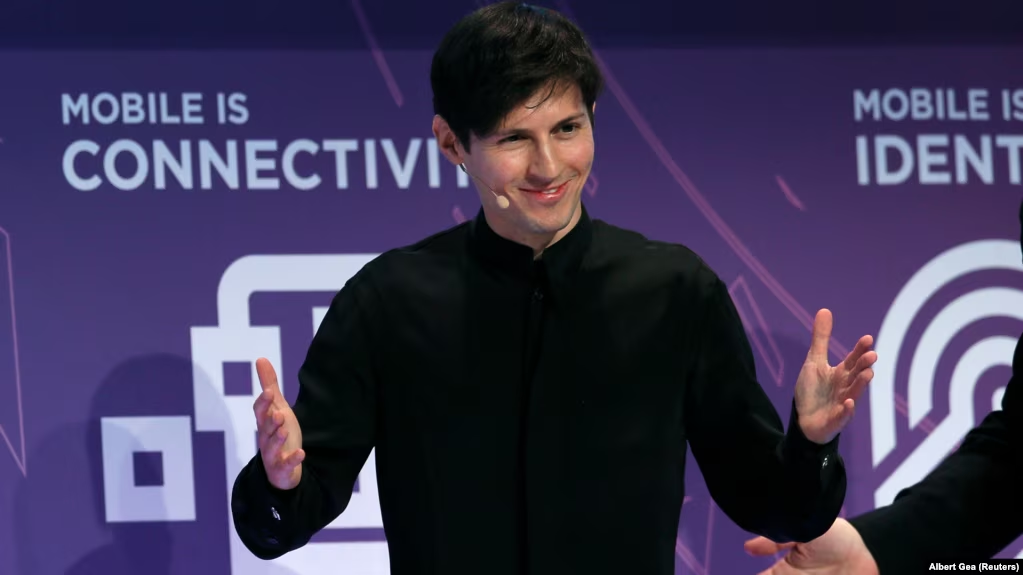
France Extends Detention of Telegram Chief Pavel Durov Amidst Growing Tensions 2024
The French government has recently made headlines by extending the detention of Pavel Durov, the CEO and founder of Telegram, a popular encrypted messaging platform. This development has sparked significant controversy and concern in both the tech community and among civil rights advocates. The decision to prolong Durov’s detention comes at a time when governments worldwide are increasingly scrutinizing the role of encrypted communication tools in the spread of misinformation and extremist content.
The Background: Telegram’s Rise and Controversies
Pavel Durov, often dubbed the “Mark Zuckerberg of Russia,” launched Telegram in 2013 as a secure, user-friendly messaging app that prioritized privacy and encrypted communication. Telegram quickly gained popularity, especially among users seeking alternatives to more mainstream platforms like WhatsApp and Facebook Messenger, which are often criticized for their data privacy practices.
Telegram’s rise, however, has not been without controversy. The platform has faced criticism for being a preferred tool for terrorist organizations, extremists, and other malicious actors due to its strong encryption and the ability to create channels with large anonymous audiences. Governments across the globe, particularly in Europe and Asia, have pressured Telegram to increase transparency and cooperation with law enforcement agencies, but Durov has consistently defended the platform’s commitment to privacy and freedom of speech.
The French Government’s Standpoint
The French government’s decision to extend Durov’s detention is reportedly linked to ongoing investigations into Telegram’s role in facilitating communication among extremist groups in Europe. French authorities have been particularly concerned about the platform’s use in organizing and spreading extremist content, especially in the wake of several high-profile terrorist attacks in recent years. The government argues that detaining Durov is a necessary step in their broader efforts to combat terrorism and protect national security.
This move by the French authorities is not without precedent. Over the years, France has taken a tough stance on issues related to digital privacy and national security. The country has implemented strict regulations to monitor and control the use of encrypted communication services, often clashing with tech companies that prioritize user privacy over government surveillance.
Legal and Ethical Implications
The extension of Durov’s detention has raised significant legal and ethical questions. Critics argue that the French government’s actions undermine the principles of due process and could set a dangerous precedent for the treatment of tech executives globally. Durov’s supporters emphasize that the detention could be seen as an attempt to intimidate and coerce compliance from tech companies, particularly those that prioritize user privacy.
Moreover, this case highlights the broader tension between national security interests and individual privacy rights. While governments argue that access to encrypted communications is essential for preventing crime and terrorism, privacy advocates warn that such actions could lead to overreach and the erosion of civil liberties. The debate over where to draw the line between security and privacy is likely to intensify in the wake of Durov’s extended detention.
The Global Response
The international response to Durov’s detention has been mixed. On one hand, some governments and security experts have expressed support for France’s actions, emphasizing the need for cooperation between tech companies and law enforcement agencies in combating terrorism and extremism. On the other hand, civil rights organizations, tech companies, and privacy advocates have condemned the detention as a violation of Durov’s rights and a threat to freedom of speech.
In particular, the tech community has rallied around Durov, viewing the detention as an attack on the principles of innovation and free expression. Many tech leaders have pointed out that such actions could stifle the development of secure communication tools that are essential for protecting users’ privacy in an increasingly digital world.
Looking Ahead
As Durov remains in detention, the situation is likely to become a focal point in the ongoing debate over privacy, security, and the responsibilities of tech companies. The outcome of this case could have far-reaching implications for the future of encrypted communication platforms and the balance between government authority and individual rights.
The world will be watching closely as this situation unfolds, with many concerned about the potential consequences for both the tech industry and civil liberties. In the meantime, Telegram’s millions of users and supporters continue to advocate for Durov’s release, emphasizing the importance of upholding the principles of privacy and freedom in the digital age.








